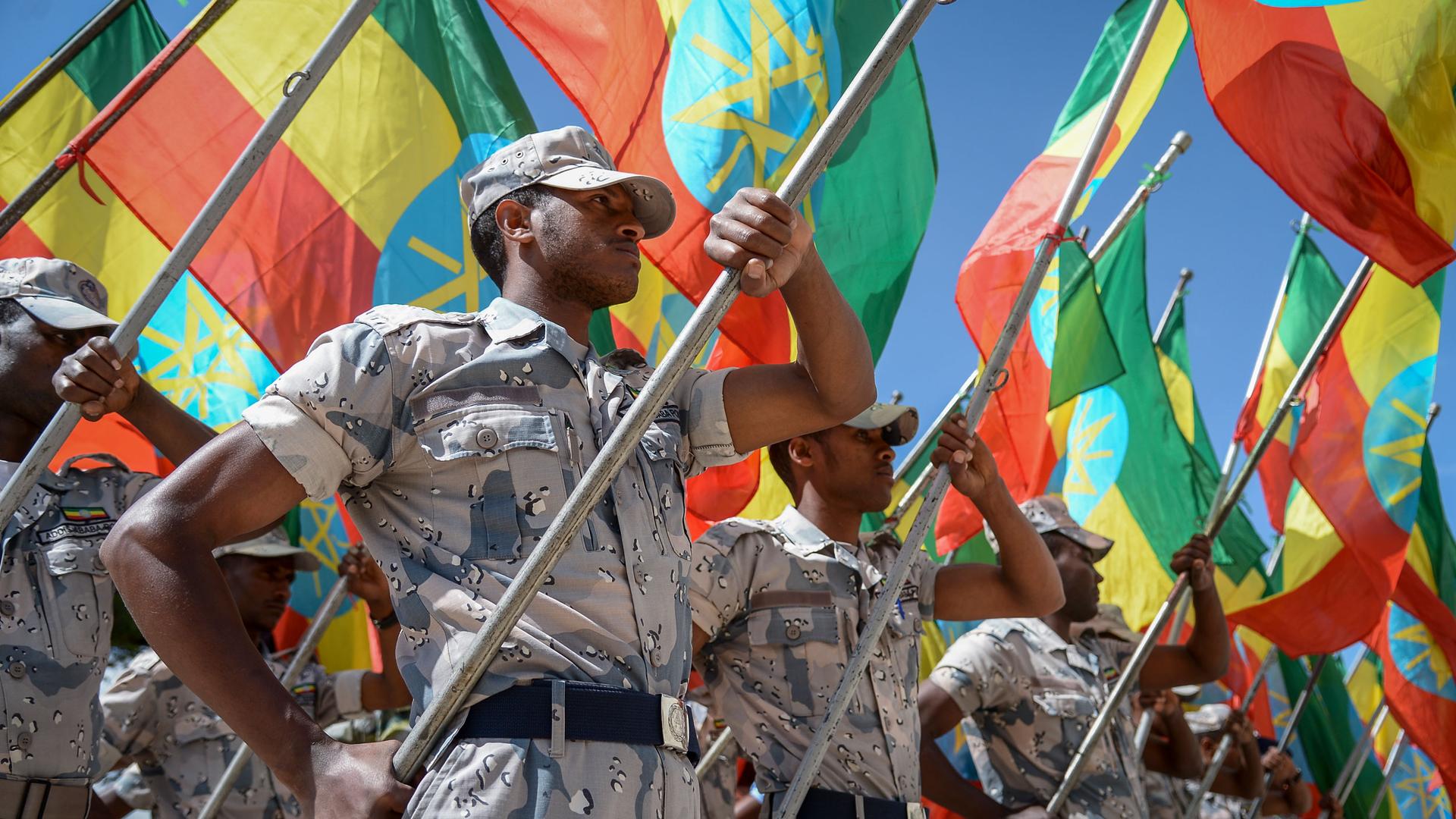When delegates from Ethiopia’s federal government and the Tigray People’s Liberation Front (TPLF) announced a permanent ceasefire agreement on Wednesday, it brought hopes that the country’s devastating civil war might finally come to an end.
“We’ve agreed to permanently silence the guns and end the two years of conflict in northern Ethiopia,” said Redwan Hussein, national security adviser and lead negotiator for the federal government.
His counterpart, Getachaw Reda of the TPLF, agreed.
“Our people deserve all the peace in the world, and we need to rebuild communities which have already been shattered as a result of such a bloody war,” Reda said.
The war erupted in 2020 following rising political tensions between the federal government led by Prime Minister Abiy Ahmed and the TPLF, which ruled the country in the decades before him.
Related: Tensions mount at Sudan-Ethiopia border as refugees flee Tigray conflict
Over the past two years, many have warned that this conflict could lead Ethiopia — a country with a proud history and bright future — to fall apart.
The war has been defined by horrific violence against civilians and ethnic divisions not only in Tigray, where it began, but also in neighboring Amhara and Afar regions where the fighting spread.
Human rights organizations have said no party is innocent of committing human rights atrocities.
“The Ethiopian national defense force, the Eritrean Defense Forces, the Tigrayan forces, the Amhara special force, the Amhara FANO militias,” listed Fisseha Tekle, Horn of Africa researcher at Amnesty International.
“All of them, they have committed serious human rights violations including rape and sexual violence,” he continued.
While the real cost of this war remains unknown, observers estimate hundreds of thousands of people have been killed.
“We have treated children, and a number of innocent civilians in the hospital after drone attacks, after artillery shellings,” said one health worker at Ayder Hospital in the Tigrayan capital Mekelle who asked to remain anonymous.
He added many people died due to lack of medicine, oxygen and supplies.
“After the war broke out, we faced difficulties. First thing is, there was no medical supplies, equipment, spare parts,” he said, adding that they also hadn’t received any laboratory chemicals since Tigrayan forces captured Mekelle last year.
The health worker said he hopes the ceasefire agreement will change that.
“What we need right now is humanitarian aid. We are in a dire situation. If they start the humanitarian flights or if they can open the corridor very soon, a lot of lives can be saved right now,” he said.
On Wednesday, both sides expressed a commitment to facilitate unhindered humanitarian access and help war-affected areas return to normal by renewing public services and rebuilding infrastructure.
“When we heard this, we are very happy,” said Ereda Sisay, a school principal in the holy city of Lalibela, which was impacted by the fighting.
“Our families, and our friends, and children died because of the war. So, the people are accepting, and we are happy for that agreement,” he said.
Sisay also said that electricity came back to Lalibela on Wednesday after more than a year and a half without. For him, this is a sign that war is really coming to an end.
“The electric source was from the conflict zone,” he said.
Related: Ethiopians from conflict-torn Tigray region say they face ethnic profiling
But others remain skeptical.
“I don’t think this agreement could really change the reality on the ground. Because the reality is different in Tigray,” said a 23-year-old Tigrayan refugee who was forced to flee to neighboring Sudan because of this war.
He asked to remain anonymous because his family is still in Tigray.
He noted how the peace deal does not account for the Eritrean troops that have been fighting in Tigray and accused of massacring civilians there, or the ethnicized border dispute in Western Tigray, where he comes from.
Still, despite the doubts, he hopes for peace.
“If the war really stops and things start getting better. If that’s possible, of course I would love to go home. I have a responsibility to rebuild Tigray,” the young refugee said, adding that he doesn’t know if many of his family members are dead or alive.
“I miss my family more than anyone. I really miss my family.”
Related: After months of fighting, Ethiopia’s Amhara region tries to recover from war
Our coverage reaches millions each week, but only a small fraction of listeners contribute to sustain our program. We still need 224 more people to donate $100 or $10/monthly to unlock our $67,000 match. Will you help us get there today?
